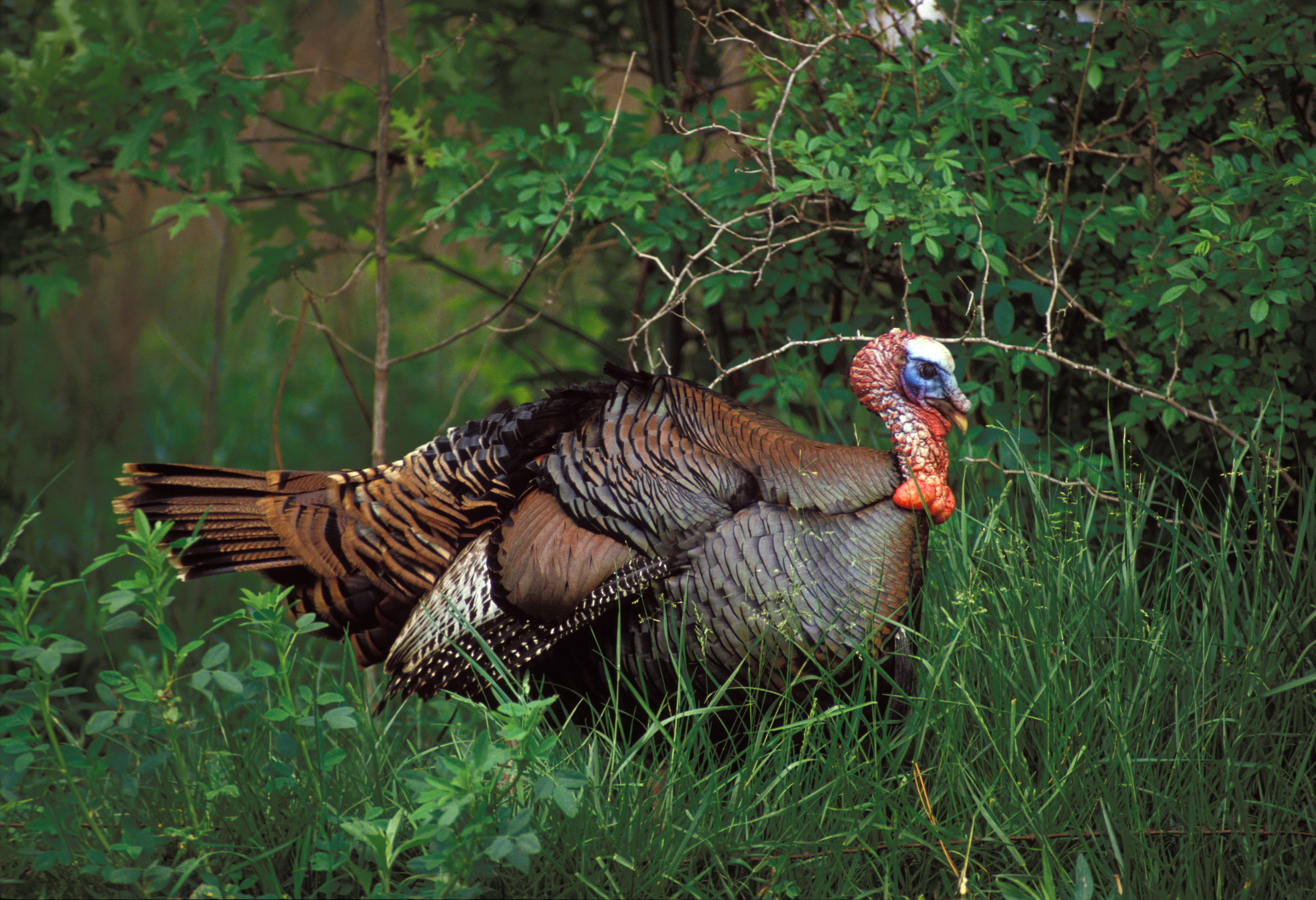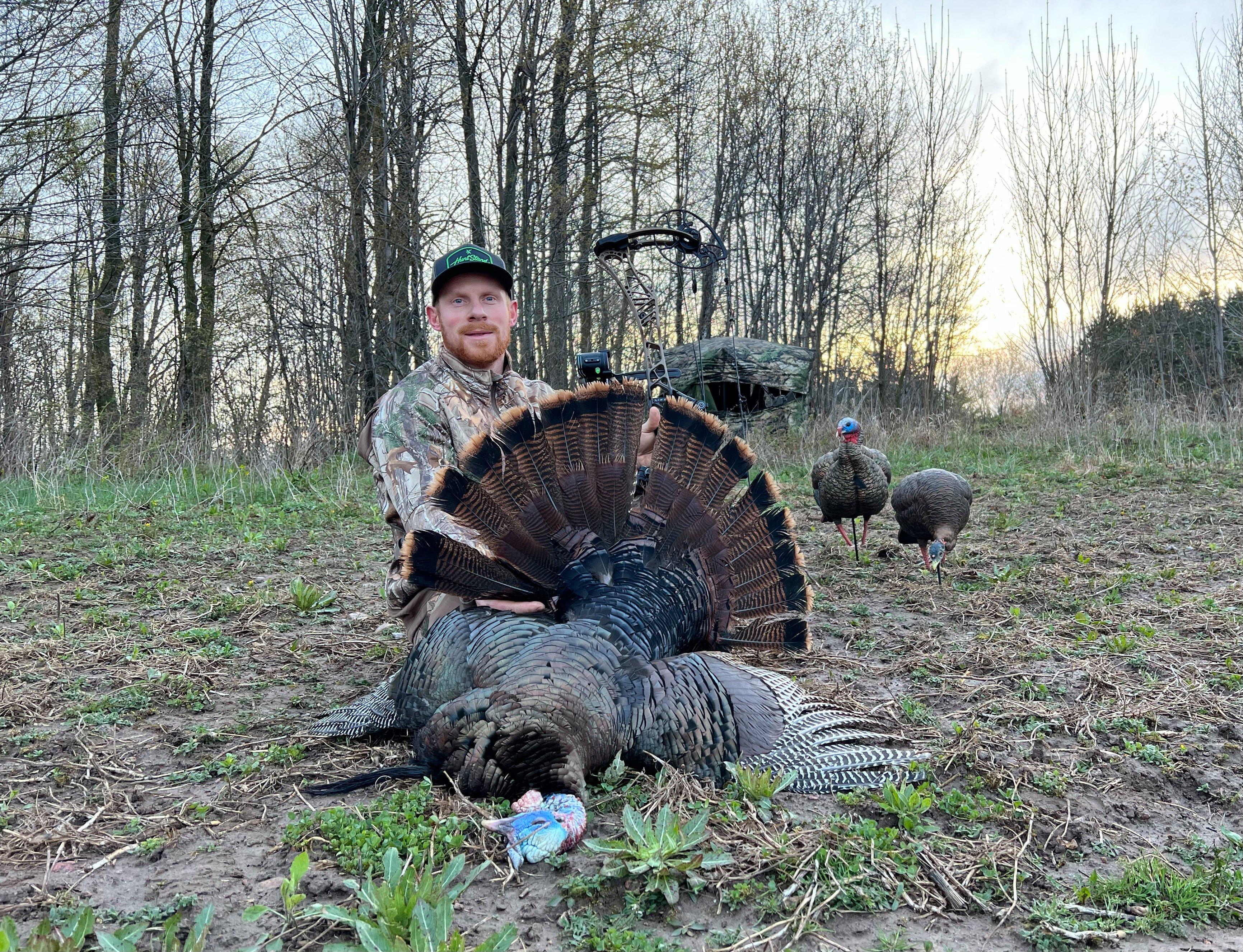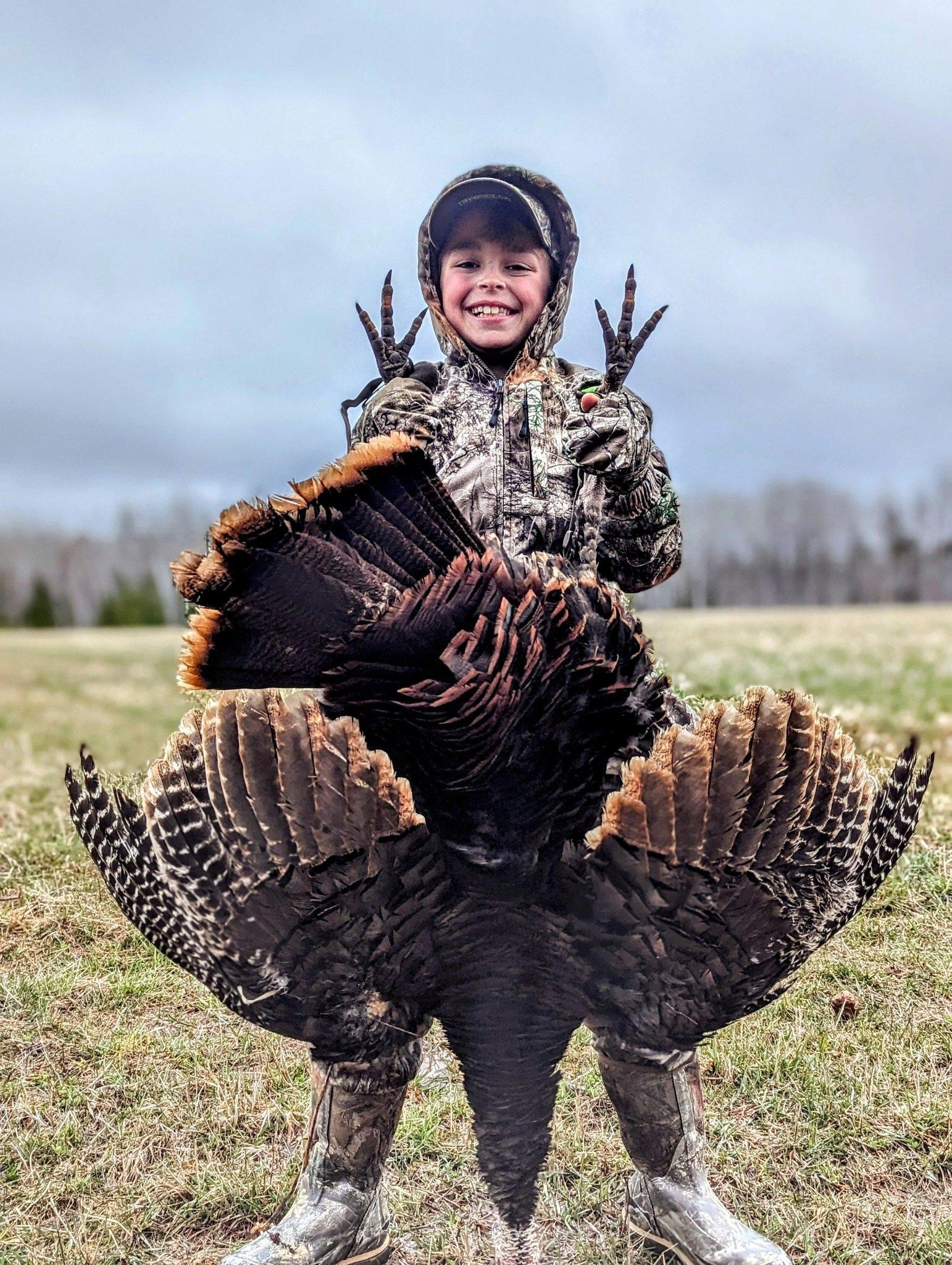Reports are mixed, but with improving weather and nesting hens, the Northern U.S. should see great calling and decoying action over the next week

New England birds are currently hard to find in fields and clearings, but they’re gobbling well off the beaten path. (Image by On the Wildside
With the May 1 Northeastern turkey openers now a week out, hunting reports are varied according to the NWTF’s New England regional director, Carter Heath, who recently checked in.
“Some hunters are saying that the turkeys have all but gone extinct in the New England region,” he began. “However, I’ve noticed that birds have not been overly visible in fields and roadside areas. Instead, they’re gobbling pretty well ‘off the beaten path.’ The birds are there, but hunters need to burn some boot leather to find them.
“With ‘leaf out’ still pending, visibility in the woods is still good for both hunters and turkeys,” Heath continued. “So far, I’ve passed up many opportunities to shoot jakes and also a marginal shot opportunity on a beautiful longbeard that wouldn’t break strut and stick his neck up.”
Don’t Miss: Finding Strut Zones, The Key to Late-Season Turkey Hunting
Just after Heath messaged me, he sent a follow-up message. He said that he’d gone with a hunch around late morning and went deep into the timber. “One tom in a ground of three gobbled on his own about 150 yards out,” he said. “I found a tree with decent visibility and set up. They all came in together to killing distance after about 10 minutes of hen talk from me. The one with the thickest beard got it with my 16-gauge.”
Another northeastern turkey troop, Hans Walthert, reported from New York.
“Our New York opener was dreary and wet,” he detailed. “Not many people had good hunting on opening day off the roost, but a few hunters tagged toms later on when the conditions improved. Days two and three were much better, and lots of friends tagged out. I called in two toms and a jake (no hens to be seen) around 9 a.m. on day two. They didn’t gobble much, but they committed to my calling nevertheless. The tom I shot was lightweight at only 18.25 pounds and had a 9 7/8-inch beard and 7/8-inch spurs.”

Strut Report author Darron McDougal anchored this Wisconsin gobbler on May 3. He’s been seeing the best turkey action of the season over the last several days. (Photo courtesy of Darron McDougal)
Way out west in Montana, Levi Johnson of Doggin’ With Levi filled me in on the latest Big Sky State turkey happenings.
“Turkey hunting has been slow,” Johnson explained. “Birds aren’t gobbling very much on the roost, and toms are still henned-up all day long. It’s been super windy with a bunch of storm fronts making it difficult to work birds. Decoy action also has been slow due to the weather and because the toms are so henned-up.”
Don’t Miss: 3 Tricks to Kill the Toughest Turkeys
Things are rocking and rolling in the Upper Midwest. I scouted one morning and hunted two mornings to get my Wisconsin Time Period C archery gobbler. I believe I would’ve scored on the first morning, but the toms I’d scouted roosted farther away, and then the winds picked up and pushed birds into the timber. I skipped the second morning due to rain, and on the third morning, the toms were roosted back in their usual spot.
I called to the two roosted birds, and they gobbled well from the roost and on the ground. In 20 minutes, they came out into the field I was hunting along with two hens and a jake. Meanwhile, two other toms started gobbling aggressively behind me and were also coming closer. The jake beelined to my jake decoy and submissive hen decoy, but the toms stayed with the live hens 100 yards out. But, when the jake mounted my hen decoy and tried to breed it, the toms came running in. 25 minutes into the morning, I had a bird down 20 yards beyond the decoys.

Although the toms were henned-up, three jakes came to the calls and a hen decoy for Brandon Meyer (not pictured) and his son, Ben. Ben is all smiles behind his first turkey ever. (Photo courtesy of Brandon Meyer)
I’ve also been seeing a lot of activity around home and during my travels. It seems that birds are very fired up throughout the day and also moving around a lot, as my trail cameras are picking up toms all day long, often without hens.
Just across the border in Minnesota, Brandon Meyer took his son, Ben, turkey hunting about a week ago. Meyer said that the toms were henned-up and wouldn’t come in, but three jakes came right to the calls and decoys, and young Ben claimed his first turkey ever.
The forecast for central Montana looks great for the next five days or so, and I’m sure hens will be nesting and freeing up the toms for good midday hunting action. Based on what I’m hearing and seeing, the best hunting in the Midwest is during the early and mid-morning hours with birds coming to the calls and decoys. Calling activity should get really good in the next two weeks up in the Northeast. Check back again next week for more Northern U.S. turkey happenings!













